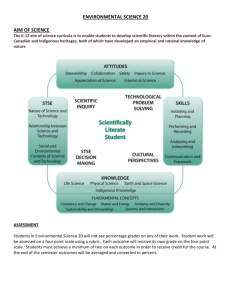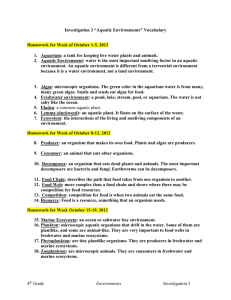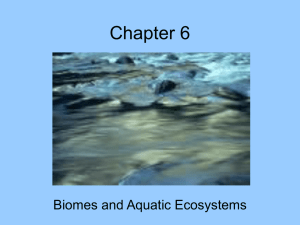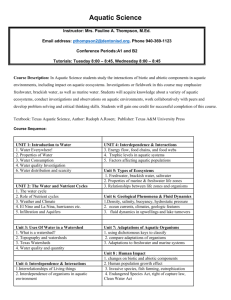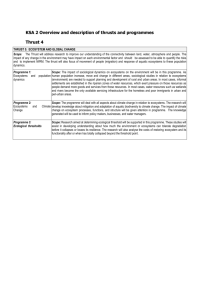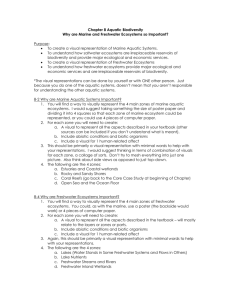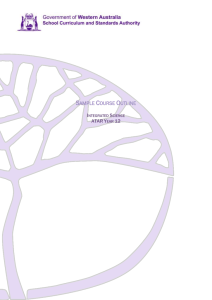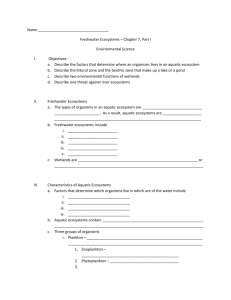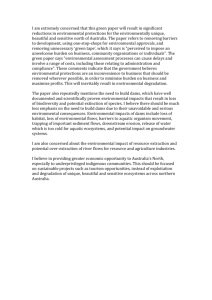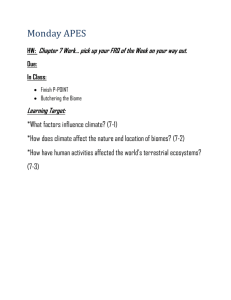Aquatic Ecosystems Lecture Outline
advertisement
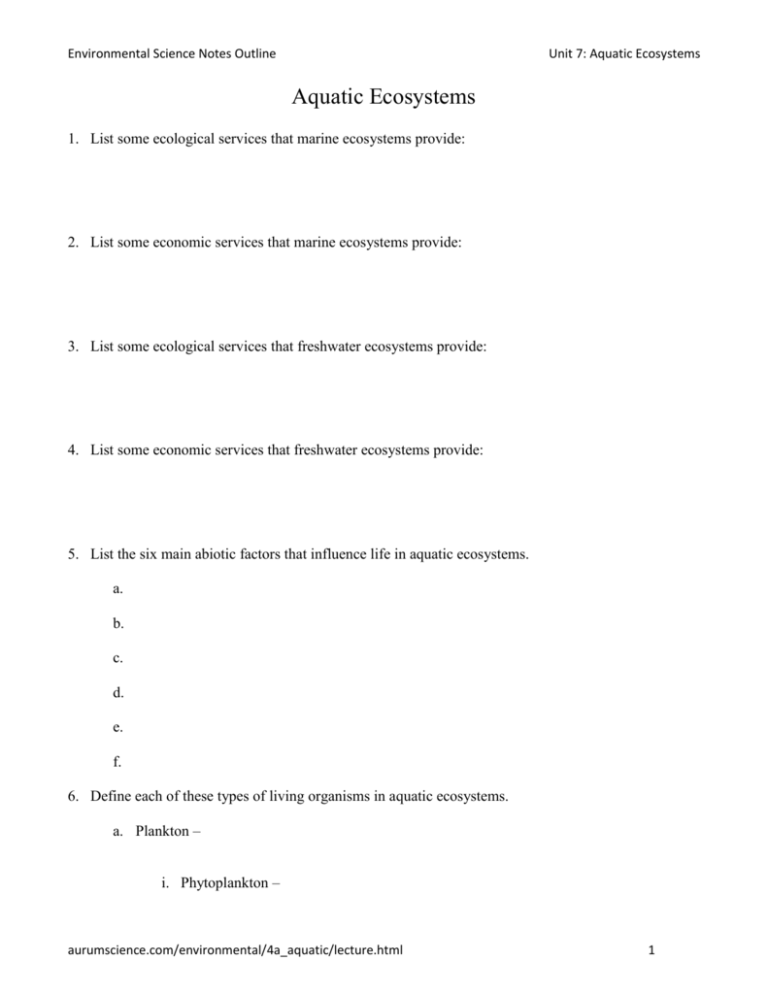
Environmental Science Notes Outline Unit 7: Aquatic Ecosystems Aquatic Ecosystems 1. List some ecological services that marine ecosystems provide: 2. List some economic services that marine ecosystems provide: 3. List some ecological services that freshwater ecosystems provide: 4. List some economic services that freshwater ecosystems provide: 5. List the six main abiotic factors that influence life in aquatic ecosystems. a. b. c. d. e. f. 6. Define each of these types of living organisms in aquatic ecosystems. a. Plankton – i. Phytoplankton – aurumscience.com/environmental/4a_aquatic/lecture.html 1 Environmental Science Notes Outline Unit 7: Aquatic Ecosystems ii. Zooplankton – b. Nekton – c. Benthos – d. Decomposers – Freshwater Lakes 7. Freshwater ecosystems have a very low _________________ level. 8. What is a lentic system? 9. What is a lotic system? aurumscience.com/environmental/4a_aquatic/lecture.html 2 Environmental Science Notes Outline Unit 7: Aquatic Ecosystems 10. Describe each of these zones of freshwater lakes: a. Littoral zone – b. Limnetic zone – c. Benthic zone – 11. Label the littoral zone and limnetic zone in this diagram. 12. Lake can be classified based on their ____________ levels and biological _________________. a. Define oligotrophic lakes – b. Define eutrophic lakes - aurumscience.com/environmental/4a_aquatic/lecture.html 3 Environmental Science Notes Outline Unit 7: Aquatic Ecosystems Rivers and Streams 13. Define stream – 14. How do rivers form? 15. Describe the temperature, oxygen level, and nutrient level of water in the source zone: 16. Describe the temperature, oxygen level, and nutrient level of water in the transition zone: 17. Describe the temperature, oxygen level, and nutrient level of water in the flood plain zone: 18. What happens at the mouth of the river? Freshwater Inland Wetlands 19. Inland wetlands are ____________________ bodies of fresh water. a. Marsh – b. Swamp – c. Bog – aurumscience.com/environmental/4a_aquatic/lecture.html 4 Environmental Science Notes Outline Unit 7: Aquatic Ecosystems Aquatic Light Zones 20. Define the coastal zone – a. Describe the level of biodiversity in this zone. b. Why is life so plentiful here? 21. What is an estuary? 22. Define each of these coastal wetlands: a. Salt marsh – b. Sea grass bed – c. Mangrove forest – 23. Describe each of the three main benefits of wetlands. a. Biodiversity – b. Flood Control – c. Pollution Control – aurumscience.com/environmental/4a_aquatic/lecture.html 5 Environmental Science Notes Outline Unit 7: Aquatic Ecosystems 24. Human activities are disrupting and degrading marine systems. List the major threats to marine systems: 25. What creates the intertidal zone? 26. Where are rocky shores and sandy shores found? 27. Coral polyps use as a source of energy. What do they produce as protection? 28. Define coral reef – 29. What is the biggest limiting factor in open ocean ecosystems? 30. Describe the depth and the amount of light penetrating into each of these ocean light zones. a. Photic zone – b. Aphotic zone – c. Benthic zone – 31. What is the base of the food webs in the benthic zone? 32. What is bioluminescence, and where are organisms that have it found? aurumscience.com/environmental/4a_aquatic/lecture.html 6
